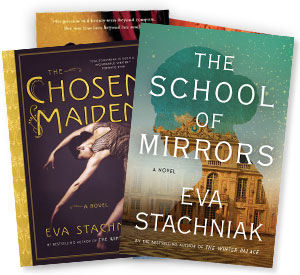Empress of the Night is my second novel of Catherine the Great. The first one, The Winter Palace told Catherine’s story from the point of view of a place spy. Empress of the Night, written in close third person (which means that the reader sees the world through the eyes of the novel’s principal character) lets the Empress of Russia herself tell her own story.
Here are some questions to stimulate a discussion on the novel:
Does a woman ruler face different challenges than a man? What are they?
Is a woman ruler judged more harshly than a man?
What are Catherine’s thoughts about being a woman/ruler in the novel? Is she justified in her assessment of these differences?
To what extend you can be a monarch when it comes to lovers, children, and grandchildren? Where do you draw the line between the political and the private? What are the costs of crossing that line?
Catherine is an absolute ruler, faced with the limits of power (over other people, over her own body). Which ones are the harshest ones to bear? Why?
Catherine was an immigrant to Russia. Did this make her stronger or weaker in the end? In what ways?
What kind of narrator is Catherine? Can she be trusted? Are there any moments in the narrative when the reader might feel manipulated? Forced into making judgements? If so, which of her decisions or justifications for these decision seem to you suspicious?
If you have read The Winter Palace, what do you make of Catherine’s account of her arrival in Russia. Was she as vulnerable as Varvara thought her to be?
What are your greatest pleasures of reading Catherine’s story? Learning about Russian history? Being a privileged witness to the Empress’s private moments?
How does a historical novel differ from a biography? What are the advantages and disadvantages of both?

Polish Language Site